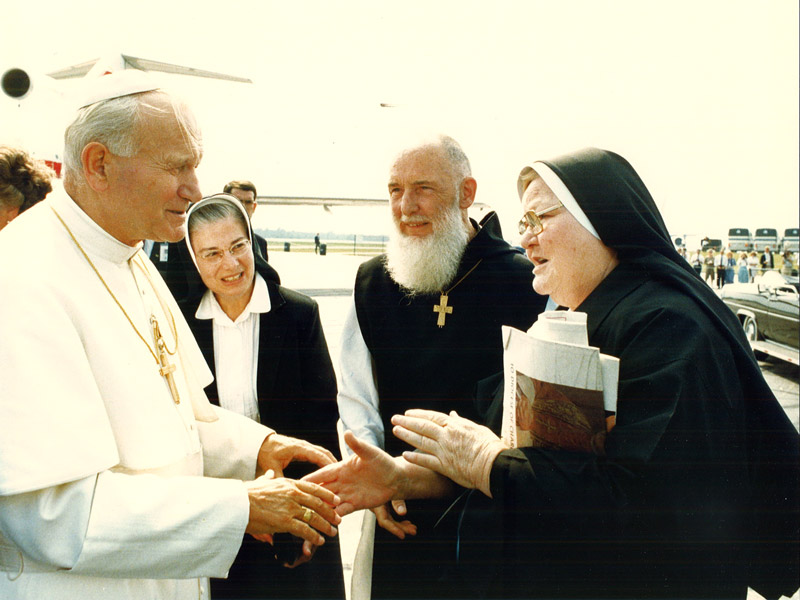
MONCKS CORNER—Any image one might have of a withdrawn monk is shattered within seconds of meeting Father Christian Carr.
Sitting in his office at Mepkin Abbey, he greets his two visitors with enthusiasm, offering a gnarled hand in welcome and launching immediately into an entertaining and intelligent discussion on all manner of topics.
The one thing he doesn’t want to talk about is himself.
Father Christian touches briefly on his accomplishments, but does not dwell on them or go into detail, saying it sounds like bragging. Most people would find his resume more than impressive, but the monk notes: “I don’t impress myself.”
“I’ve had a lot of schooling,” he said, with a twinkle in his eyes, “enough to know I don’t amount to a hill of beans.”
His fellow Trappists and friends would disagree with that statement.
Father Kevin Walsh, the prior at Mepkin, calls Father Christian a wise and holy man, and an all around delightful human being.
 He served as the monastery’s second abbott from 1974 to 1989, a time of great transition for the monks, when they were feeling their way from a life of seclusion and silence to the world they’re in now, with open gates, tours and retreats.
He served as the monastery’s second abbott from 1974 to 1989, a time of great transition for the monks, when they were feeling their way from a life of seclusion and silence to the world they’re in now, with open gates, tours and retreats.
These were men known for hard manual labor, silence and exclusiveness. They lived behind closed gates and slept on straw mats; but all that changed with a mandate from Vatican II for religious to return to their original charism. For the Trappists, this meant following the rule of Benedict to welcome every guest as the presence of Christ.
Brother John Corrigan remembers that time, and said the very sociable Father Christian was perfectly suited to the job of helping the community see their new role and implement it.
“He did an awful lot of good in a difficult time in Church history,” Brother John said.
Father Christian will celebrate his 100th birthday on Sept. 14, with a private ceremony to honor a lifetime packed with accomplishments, love and laughter.
Born in Galveston, Texas, he talks warmly about his family and his upbringing. He began his religious life as a Franciscan, dedicating 24 years to the order. During that time he earned two doctorates, taught dogma and canon law at the Franciscan seminary near Albany, N.Y., and served as associate editor and then editor of Homiletic and Pastoral Review during the years of the Second Vatican Council.
His life has followed many paths, including stints teaching medical ethics, philosophy and theology. He also spent time in the field of aeronautical engineering, and has a deep love of etymology. He joined the Trappist order in 1969.
Wherever his life took him, it invariably led to some sort of leadership role, Brother John said, adding that he still fills that role today, serving as a wisdom figure for the younger brothers.
When Pope John Paul II visited Columbia in 1987, Father Christian was one of those tapped to meet him at the airport. He said the pope was the real thing, a true leader and man of greatness because the pontiff was not looking for awe, but for real interaction and moments of friendship.
People have always been important to Father Christian, who said humans are fascinating because they were created by God.
People remember the former abbott joyfully greeting visitors, giving tours of the abbey two times a day, and always being available for spiritual direction.
“He has remained deeply engaged in life and is deeply concerned with the lives of the monks,” said Father Kevin.
The prior often stops by to talk with Father Christian, adding that he never knows what the conversation will be, from quoting poetry to questions of theology and philosophy.
Looking back, Father Christian said offering hospitality is the right thing to do because it allows God’s grace and love to flow outward and inward. Changes occurred — the discipline of silence became less strict, and people wander the grounds — but the essence has not changed. Monks still spend their days learning to love more, and now share and teach it to the outside world that comes to visit.
“I’ve never been happier than being a monk,” Father Christian said.

